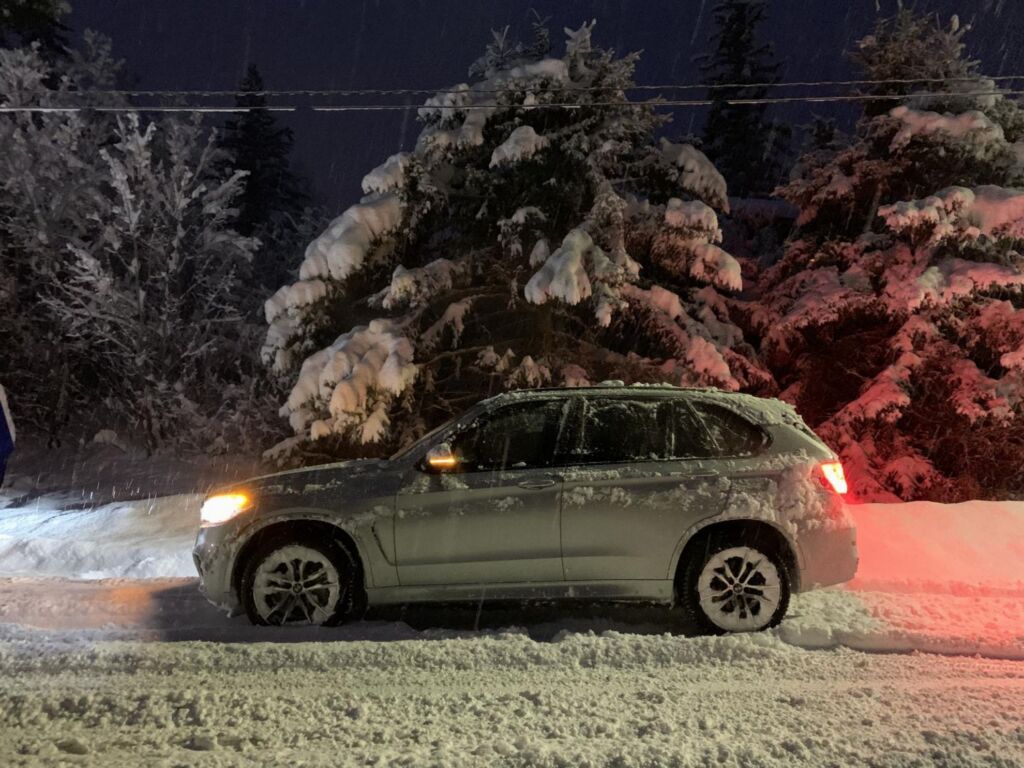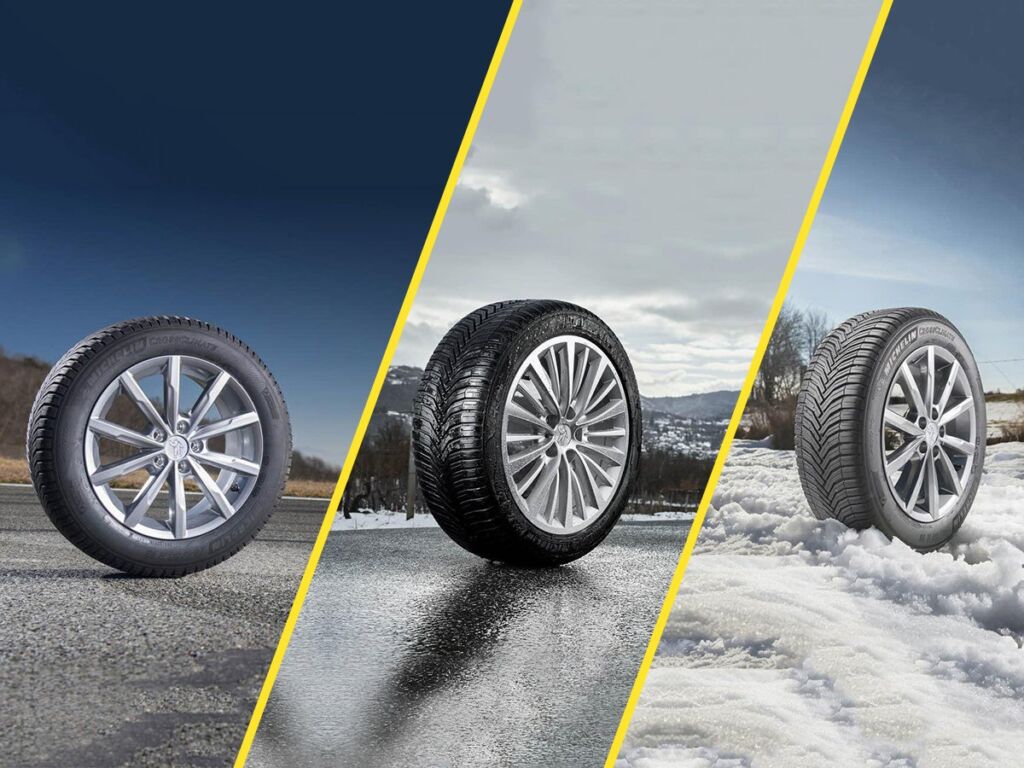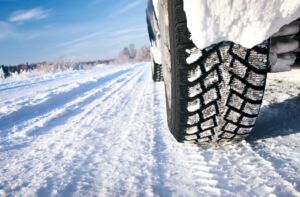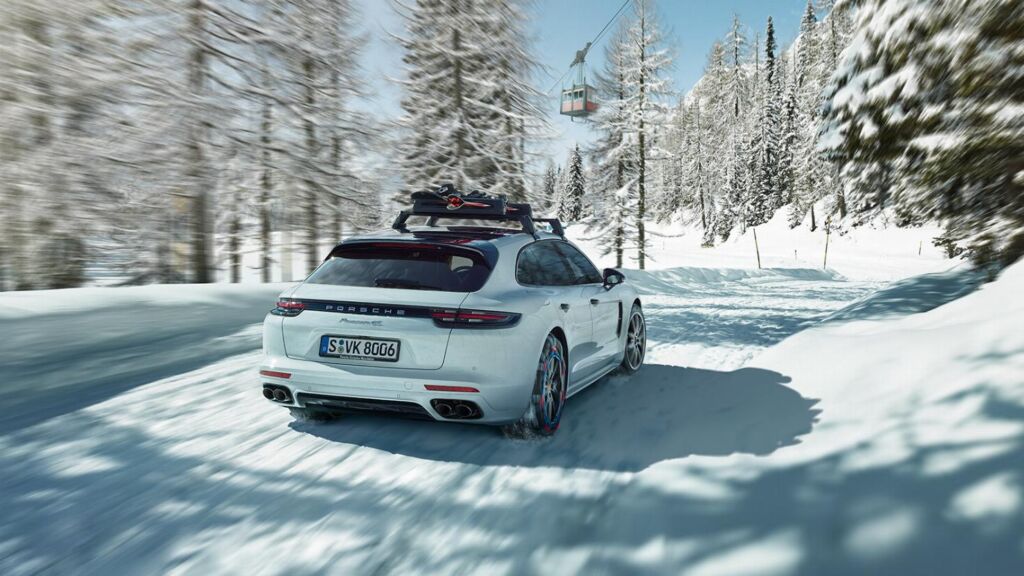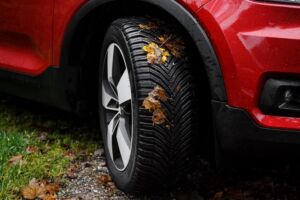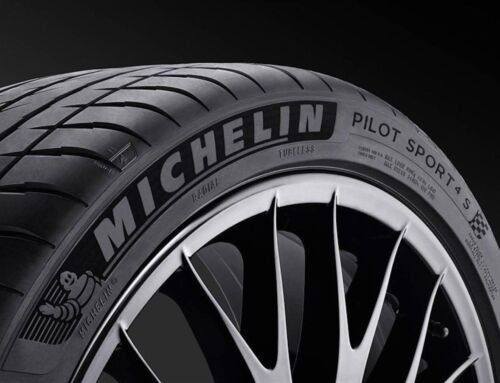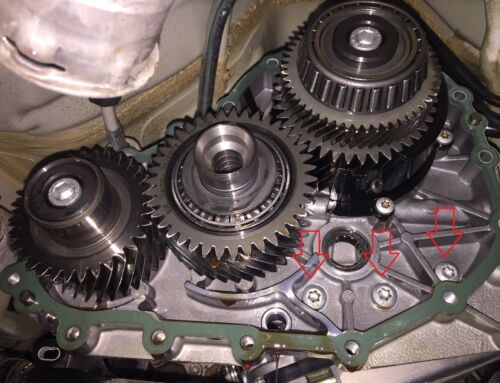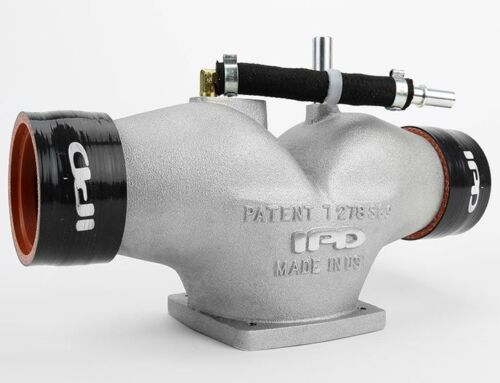All-Weather tires – Are they awesome or adequate?
Over the last few years there has been a lot of effort put into marketing All-Weather tires as do-it-all solution for passenger vehicles. There is no question that a high-quality All-Weather tire will perform better in winter conditions compared to a traditional All-Season tire but do these new tires really make Winter tires obsolete? The short answer for anyone that lives in Alberta is no.
In our view All-Weather tires are an excellent choice for basic daily driving and commuter driving in climates that see limited winter snowfall and where temperatures are rarely below 0C. Examples of this would be a Toyota Camry in Vancouver or an Acura MDX in Penticton. All-Weather tires are not ideally suited for high-performance vehicles or for use in climates that receive lots of snow and experience extended periods of sub-zero temperatures with icy roads.
For drivers living in Alberta, and especially those planning to travel through the mountains between October and April, Winter tires are still a much better solution for traction and safety. Winter tires are even more important for drivers of high-performance, high-powered or two-wheel drive vehicles
We feel the guidance Michelin provides regarding All-Weather vs Winter tires echoes our feelings:
Why should I change to a winter tire instead of all-season or all-weather tire?
For some severe winter countries, all-season or all-weather tires with the 3PMSF (Three-Peak Mountain Snowflake) certification will not provide best performance and highest levels of safety in severe winter conditions and temperatures where ice, snow, and /or slush are present on the roads.
What is the difference between an all-season or all-weather tire versus a winter tire?
The X-Ice SNOW is designed for severe winter conditions where tire changeover in winter is recommended to ensure excellent safety and mobility in winter. Winter tires typically have a higher snow traction, superior ice grip and handling and are made of compounds with lower transition temperatures than all-season or all-weather tires.
Another opinion comes from the editors at Car and Driver after they looked into the latest crop of all-weather tires and suggested:
If you need true cold-weather, slush-cutting, black-ice-gripping winter tires, stick with those that you need to swap on and off. If you’re in, say, the Cincinnati-to-Nashville latitude and short-lasting winter squalls occasionally threaten to leave you stranded, the all-weather tire is a one-tire solution that might be worth looking into.
Finally, this insight from Tire Rack helps to clarify why All-Weather tires and Alberta aren’t ideal partners.
Premium Traction tires, sometimes referred to as All-Weather tires, are non-winter tires that are marked with the three-peak mountain snowflake (3PMSF) symbol and designed to be a year-round solution for drivers in environments that experience all four seasons, but don’t receive sufficient snowfall or icy conditions to require a dedicated winter tire.
The requisite test to qualify for the 3PMSF mark is a spin test (ASTM E1136-14) that measures acceleration traction in medium-packed snow only. In that regard, Premium Traction tires guarantee a minimum level of traction in that very specific scenario. The 3PMSF mark makes no guarantee of braking or cornering traction in snow, and there is no ice component of the test.
Tunerworks confidently recommends dedicated winter (ice and snow) tires for people planning to tackle Alberta winter driving conditions. For those people who are confident that an all-weather tire will provide sufficient winter safety we offer the following brands and models:
- Hankook Kinergy 4S
- Michelin CrossClimate +
- Michelin CrossClimate SUV
- Michelin CrossClimate 2
- Nokian WRG4, WRG4 SUV, Rotiiva AT
- Toyo Celsius and Celsius CUV
- Firestone WeatherGrip


